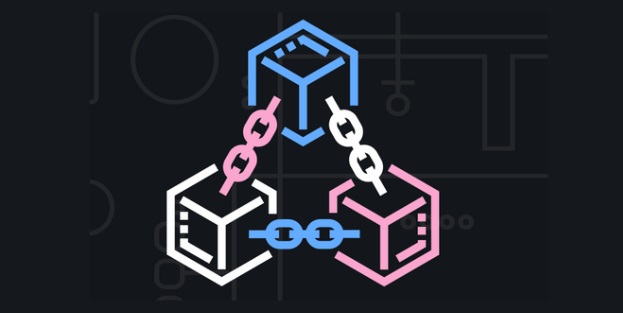Blockchain is an innovative technology that is transforming the way businesses operate today. By understanding the fundamentals of blockchain methods, businesses can take advantage of this technology, modernize, and secure their operations. As well as provide a way to prepare for the future. This article will discuss the definition of blockchain, its advantages and disadvantages, various types, benefits for businesses, challenges, use cases, and future trends.
Blockchain is a next-generation technology
Blockchain is a decentralized, distributed ledger technology (DLT) that provides an immutable record of digital transactions. It uses complex algorithms and cryptography to create a secure, shared, and distributed ledger. That can be used to store and transfer information. Blockchain is most commonly associated with cryptocurrency nowadays. But its potential applications are far-reaching, including financial services, healthcare, supply chain management, and many more.

Overview & its implications for Business:
Blockchain is revolutionizing the way business is conducted, through its efficiency, security, transparency, and cost-saving capabilities. By using distributed ledgers, businesses can securely store and transfer data over a decentralized network, eliminating the need for a centralized authority. This will result in reduced operating costs, as well as improved customer experience. Smart contracts, enabled by this technology, allow businesses to automate transactions and contracts, reducing the need for manual processing. This helps to increase efficiency and improve customer trust. Additionally, blockchain enables users to maintain a permanent and immutable record of transactions, thereby increasing transparency. By using these features, businesses can achieve many benefits, such as increased efficiency, security, transparency, and cost savings.
Advantages of Blockchain technology:
Compared to traditional data storage and transport methods, blockchain technology offers numerous advantages. Its decentralized and distributed nature makes it nearly impossible to tamper with or alter data stored on the blockchain, as it is safe, transparent, and immutable. Furthermore, this technology provides a reliable and cost-effective method of data transmission, making transactions quicker and more secure. Moreover, due to its high scalability, blockchain can facilitate the development of applications and networks with thousands of users, making it an ideal platform for companies to build systems and apps.
Disadvantages of Blockchain technology:
Although blockchain is a revolutionary new way of storing and accessing data, it does have some drawbacks. For one, it is costly to implement and maintain due to its complicated nature. In addition, this is not easily scalable, meaning that it can only be used for small projects. Furthermore, the security of this technology is also in question, as it can be vulnerable to attacks like 51% attacks. Blockchain is also not widely accepted yet, meaning that it can be difficult to find people and businesses that utilize it.
Types of Blockchain:
Public Blockchain:
A public blockchain is an open, decentralized distributed ledger system that securely and permanently records and saves data. All users have access to the public blockchain, which enables them to freely see and instantly verify data. The public blockchain is decentralized, which makes it faster and more secure than conventional techniques. Because it doesn’t depend on the presence of any third-party middlemen. Applications for it include supply chain management, healthcare, cryptocurrencies and finance, and many more.

Private Blockchain:
A private blockchain is a secure and distributed ledger system that is only accessible to authorized individuals. It records and stores data securely, allowing authorized users to view and verify the data in real-time. Compared to traditional methods, private blockchains provide faster speed and enhanced security since no third-party intermediaries are needed. These blockchains are utilized in a variety of industries, such as banking, supply chain management, and cryptocurrency.
Consortium Blockchain:
Consortium Blockchain is a type of distributed ledger technology that is maintained and operated by a group of organizations, rather than by a single entity. This type of blockchain is a secure and reliable way to store and transfer digital assets. It offers a higher level of trust and security than a traditional blockchain, as it is not controlled by a single entity. This makes it attractive to companies and organizations that need to ensure that data is secure and private. Consortium blockchains also provide increased scalability and flexibility, as they can be customized to meet the needs of different users. It is suitable for applications that require secure and private sharing of data. Such as banking, healthcare, and supply chain management.
Sidechain:
The movement of digital assets between two blockchains is made possible through sidechains. Which are secondary blockchains connected to major blockchains. By enhancing the capabilities of already-existing blockchain networks, this kind of blockchain technology enables more sophisticated, decentralized applications. A more flexible and secure system is made possible by sidechains. Which are effectively secondary blockchains that may communicate with the primary blockchain. On top of the primary blockchain, sidechains also give developers the ability to build unique features and applications. Several sectors, including finance, healthcare, and supply chain management, use this kind of technology.
Hybrid Blockchain:
A hybrid blockchain is a combination of a private and a public blockchain. It is a type of blockchain technology that combines the advantages of private and public blockchains. It provides the privacy and security of a private blockchain while enabling the transparency and immutability of a public blockchain. This type of blockchain is used in various industries, such as finance, healthcare, and supply chain management. This is attractive to companies and organizations that need a secure and private system to store and transfer sensitive data. Also providing the transparency, immutability, and security of a public blockchain.
Benefits of the use of Blockchain technology:
Many industries are revolutionizing themselves today using blockchain technology. It is a distributed ledger technology that is secure, transparent, and immutable, eliminating the need for expensive and time-consuming middlemen. Data is stored cryptographically, making it virtually impossible to tamper with, providing increased security. Blockchain is very effective in handling transactions quickly and securely. Smart contracts and other automated processes can be facilitated, reducing manual involvement. Companies can benefit from improved security, greater efficiency, and cost savings by utilizing this technology.

Challenges and Limitations:
Blockchain is a powerful tool, but it has its own challenges and limitations. For example, blockchain networks tend to be slower and more expensive than traditional systems. And scalability can become an issue as blockchains grow. Besides, deploying this technology requires powerful computers and sophisticated software, making it difficult to do. Since there is no central authority to verify transactions, blockchain technology requires a high level of trust between participants. When deciding to use blockchain technology in a particular application, all these disadvantages and restrictions must be taken into account.
Use Cases of this Technology:
Blockchain technology has a wide range of use cases from financial services to healthcare. In the financial industry, blockchain technology can be used to securely and transparently store and transmit money, and assets. For the healthcare industry, this can securely store and share patient records. In the supply chain sector, blockchain technology has the potential to be used to track products and ensure data integrity. In addition, in the public sector, blockchain can be used to store and transfer sensitive information. Such as voter data, tax data, and other information related to elections.
Future Trends:
Blockchain technology will grow bigger in the near future and its use in our society will increase day by day. As technology advances, it will become safer and easier to use thanks to the creation of sophisticated security mechanisms and quantum computing. The growing popularity of distributed ledger technology will open up more opportunities for businesses to adopt blockchain solutions. Furthermore, the proliferation of smart contracts will give companies a more efficient way to manage transactions. Finally, the use of digital currencies based on blockchain will increase, giving people more control over their digital assets.
In conclusion, this is a ground-breaking innovation that is revolutionizing how companies conduct business. Businesses can take advantage of this technology by getting ready for the future of business by grabbing its fundamentals. Numerous benefits of blockchain technology include increased security, better traceability, and transparency. Also helps a company to save its costs, quicker transactions, and more effective data management. But there are also some difficulties and restrictions to take into account, including scalability problems, and data manipulation. The use cases of this technology are also wide-ranging, from banking and finance to healthcare and supply chain management. New trends in blockchain are emerging all the time. And businesses should be aware of the potential of blockchain-based digital currencies and the implications of regulations and security issues.
